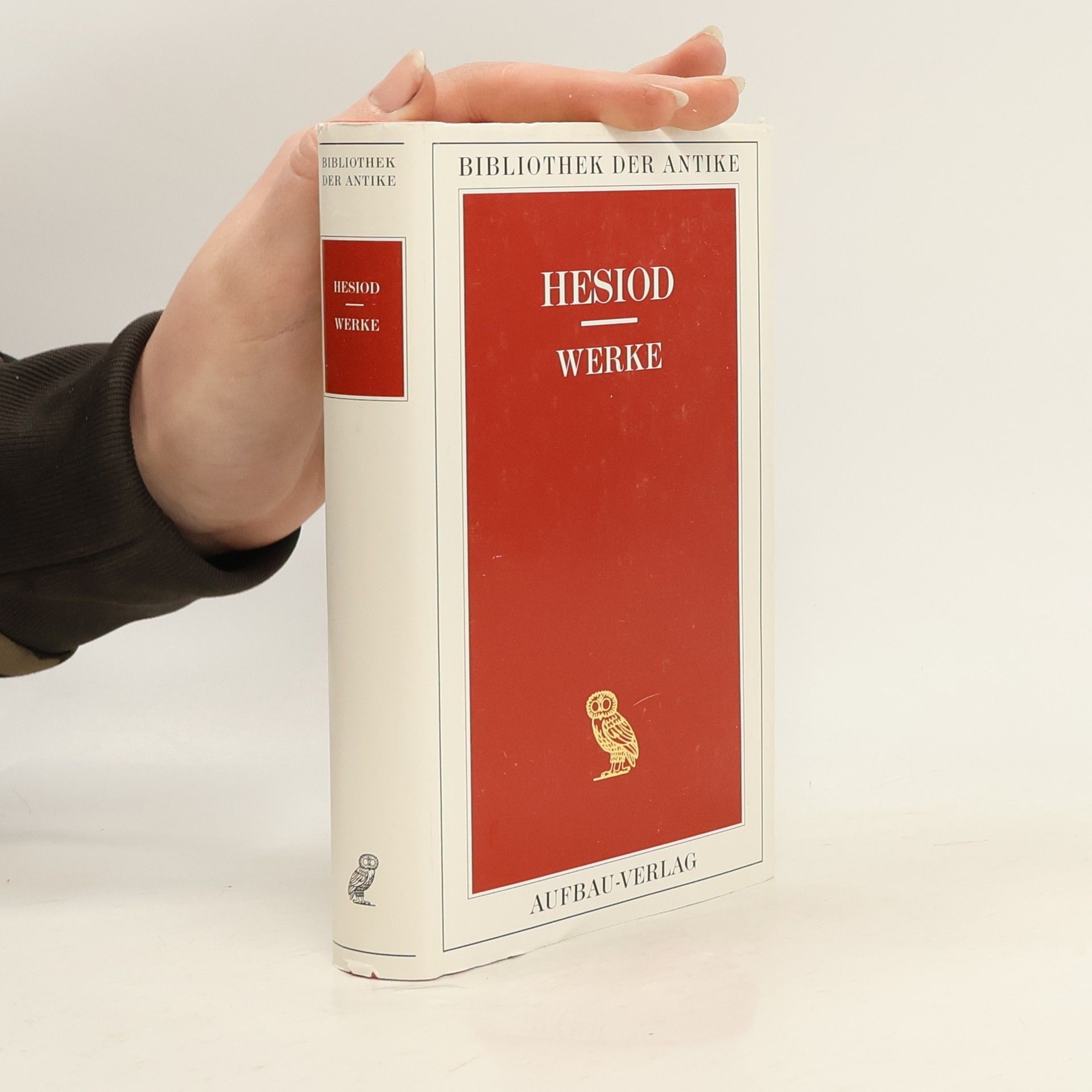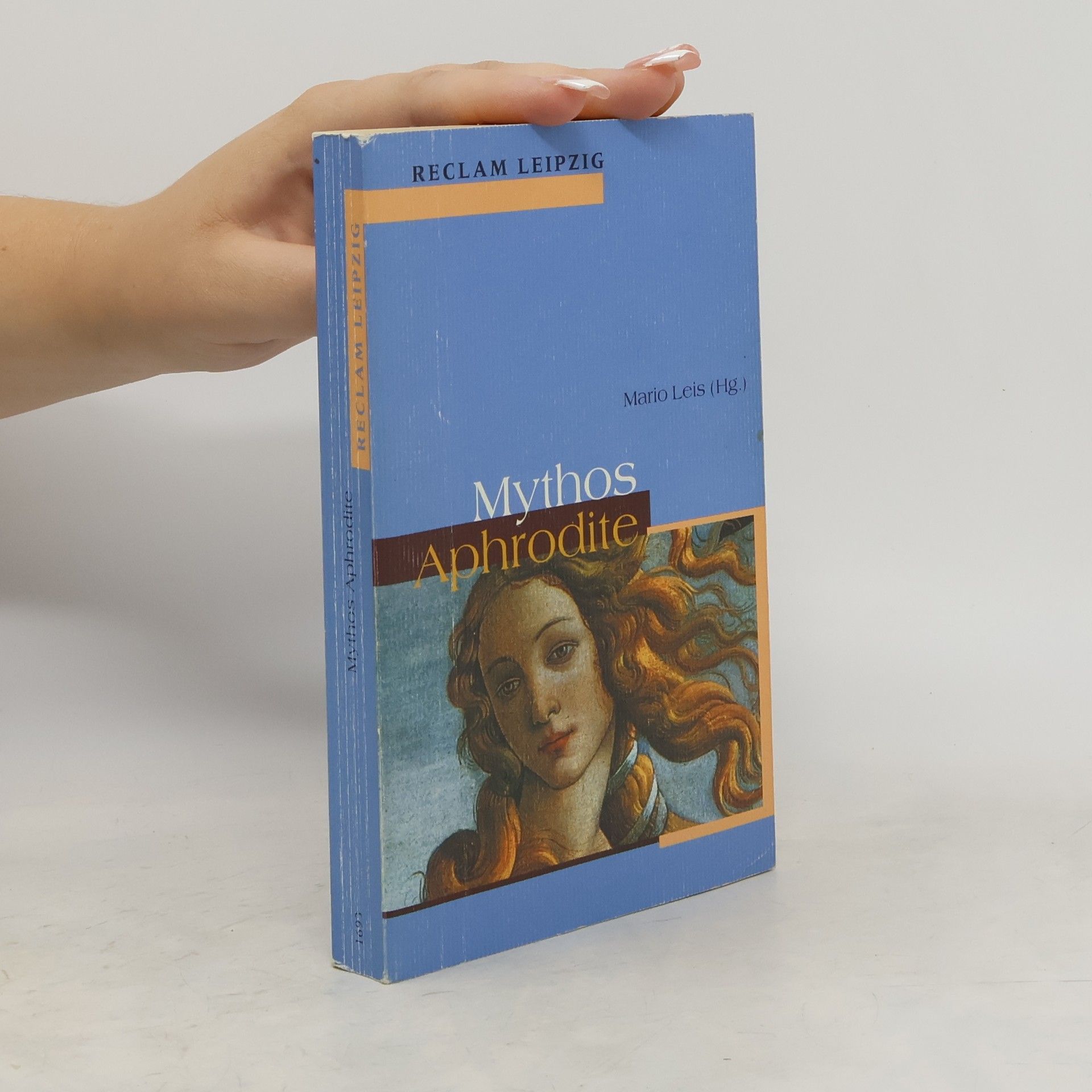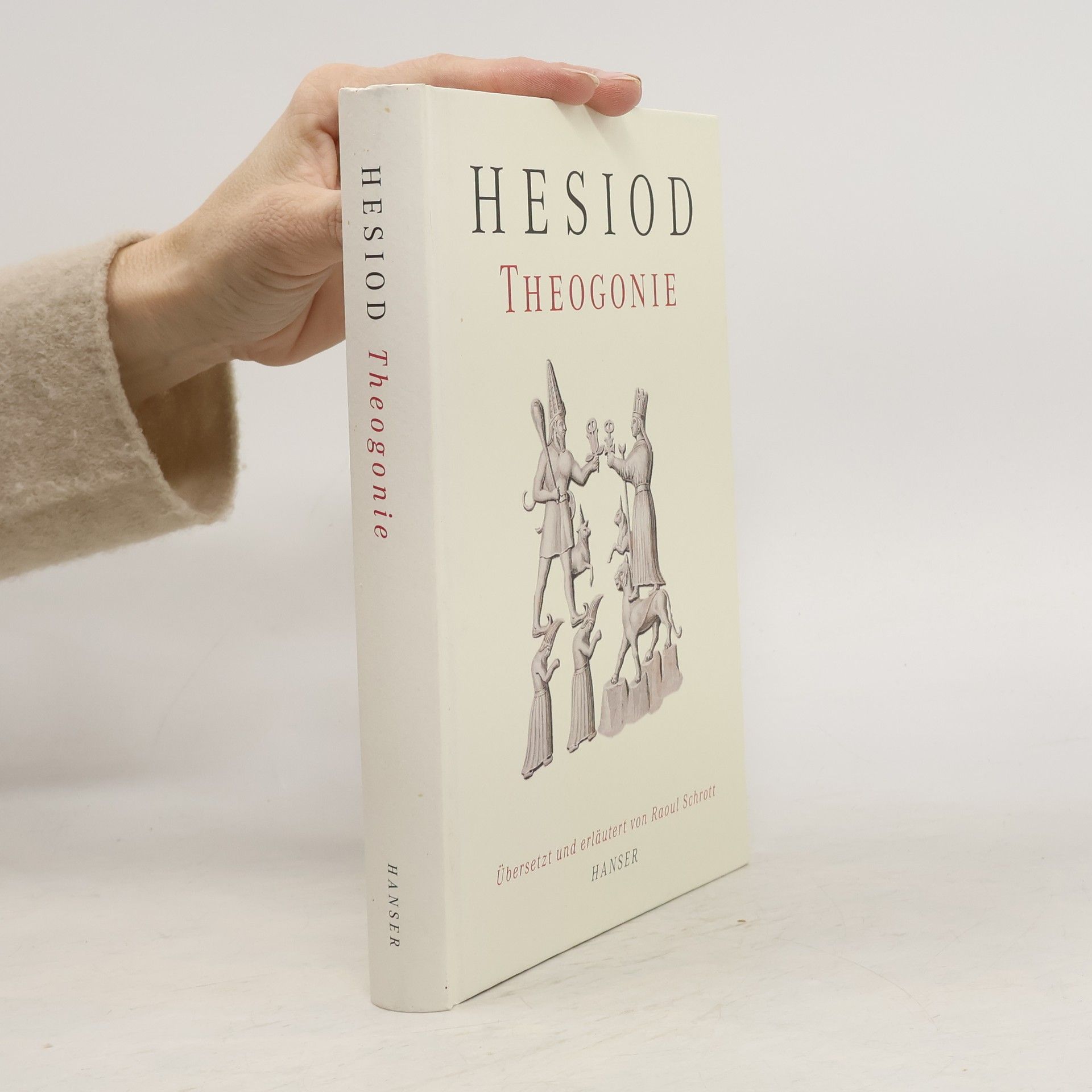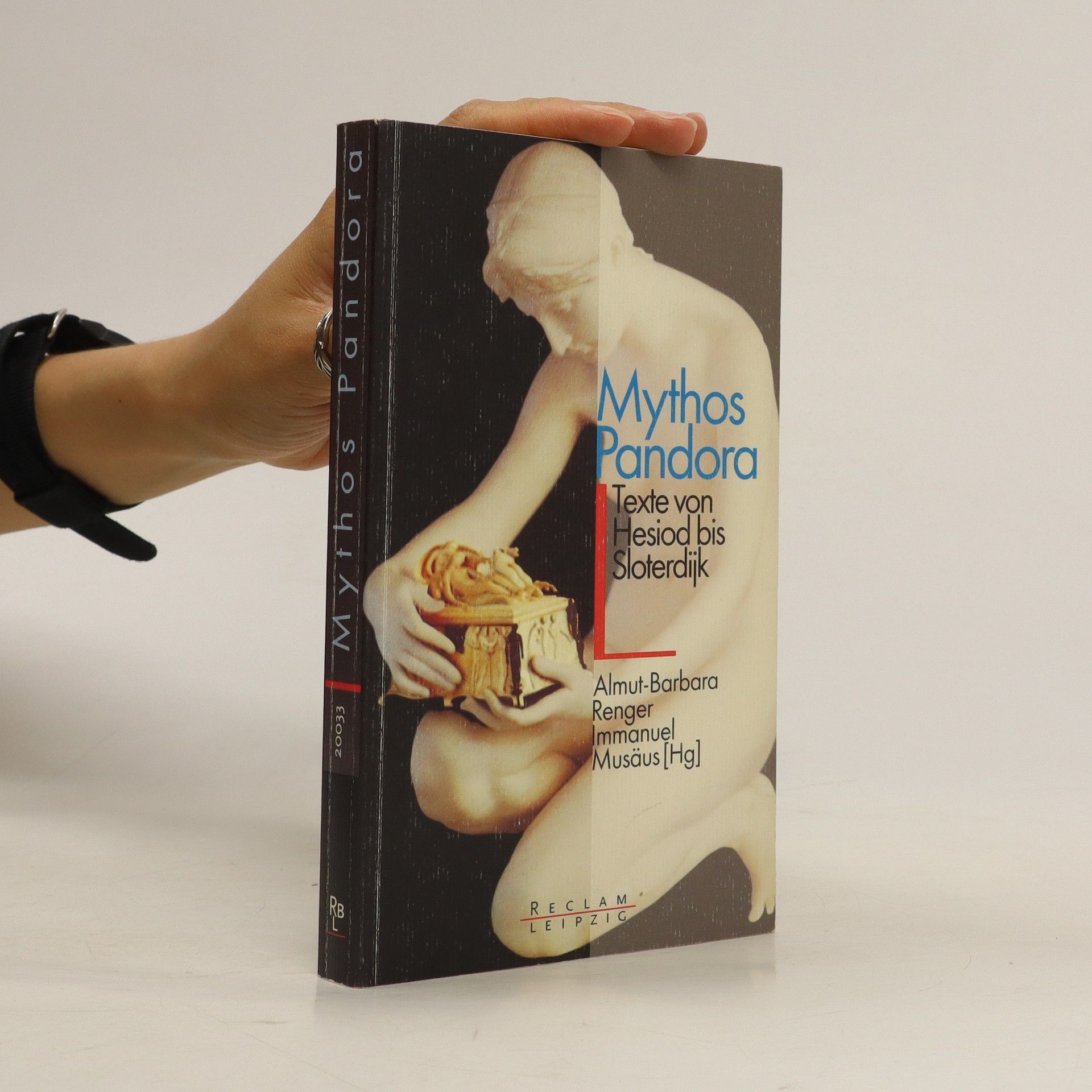Mythos Pandora
- 259 Seiten
- 10 Lesestunden
Hesiod gilt als Vater der griechischen Lehrgedichte und prägte maßgeblich die didaktische Poesie. Seine Werke, darunter „Werke und Tage“ und „Theogonie“, verbinden die Erfahrungen des täglichen Lebens mit mythischen Erzählungen. In „Werke und Tage“ schildert er eindringlich das bäuerliche Dasein, angereichert mit Fabeln und persönlichen Begebenheiten, und schafft so eine Art boiotischen Schäferkalender. Mit der „Theogonie“ unternahm er den ehrgeizigen Versuch, die losen Götter- und Schöpfungslegenden seiner Zeit zu einem systematischen Ganzen zu ordnen, und legte damit den Grundstein für die systematische Darstellung der griechischen Mythologie.







Übersetzt und erläutert von Raoul Schrott
Die hesiodische Theogonie - Mit einem Versuch uber die hesiodische Poesie uberhaupt, einer Einleitung und kritischen und exegetischen Anmerkungen zur Theogonie ist ein unveranderter, hochwertiger Nachdruck der Originalausgabe aus dem Jahr 1865. Hansebooks ist Herausgeber von Literatur zu unterschiedlichen Themengebieten wie Forschung und Wissenschaft, Reisen und Expeditionen, Kochen und Ernahrung, Medizin und weiteren Genres.Der Schwerpunkt des Verlages liegt auf dem Erhalt historischer Literatur.Viele Werke historischer Schriftsteller und Wissenschaftler sind heute nur noch als Antiquitaten erhaltlich. Hansebooks verlegt diese Bucher neu und tragt damit zum Erhalt selten gewordener Literatur und historischem Wissen auch fur die Zukunft bei."
This adaptation explores the foundational themes and narratives of Hesiod's two major poems, which significantly influenced the development of Greek philosophy, particularly the works of Plato. By reinterpreting these ancient texts, the book highlights their enduring relevance and the philosophical concepts that emerged from them, showcasing their impact on Western thought.
Presents epic poems by one who has been called the first Greek philosopher and theologian.
Offers an introduction to the life and thought of ancient Greece.
Illustrated, with an Introduction by H.G. Evelyn-White
Set in 700 BC Greece, the narrative follows Hesiod, a humble shepherd from Boetia, who experiences a transformative encounter with the Muses. They grant him a laurel staff and the divine gift of Poetry, enabling him to articulate the wonders of the past and future. Through his newfound voice, Hesiod embarks on a journey to celebrate and immortalize the stories and truths of his time.